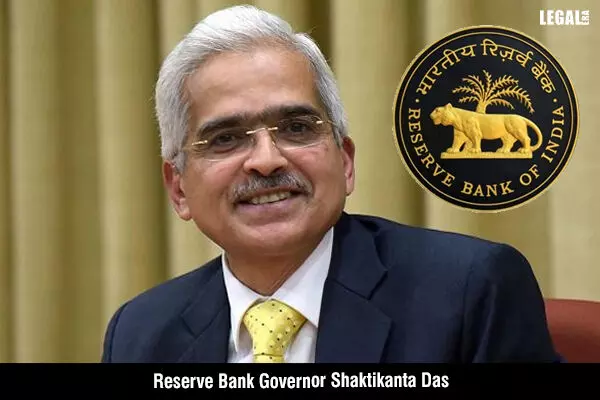- Home
- News
- Articles+
- Aerospace
- Artificial Intelligence
- Agriculture
- Alternate Dispute Resolution
- Arbitration & Mediation
- Banking and Finance
- Bankruptcy
- Book Review
- Bribery & Corruption
- Commercial Litigation
- Competition Law
- Conference Reports
- Consumer Products
- Contract
- Corporate Governance
- Corporate Law
- Covid-19
- Cryptocurrency
- Cybersecurity
- Data Protection
- Defence
- Digital Economy
- E-commerce
- Employment Law
- Energy and Natural Resources
- Entertainment and Sports Law
- Environmental Law
- Environmental, Social, and Governance
- Foreign Direct Investment
- Food and Beverage
- Gaming
- Health Care
- IBC Diaries
- In Focus
- Inclusion & Diversity
- Insurance Law
- Intellectual Property
- International Law
- IP & Tech Era
- Know the Law
- Labour Laws
- Law & Policy and Regulation
- Litigation
- Litigation Funding
- Manufacturing
- Mergers & Acquisitions
- NFTs
- Privacy
- Private Equity
- Project Finance
- Real Estate
- Risk and Compliance
- Student Corner
- Take On Board
- Tax
- Technology Media and Telecom
- Tributes
- Viewpoint
- Zoom In
- Law Firms
- In-House
- Rankings
- E-Magazine
- Legal Era TV
- Events
- Middle East
- Africa
- News
- Articles
- Aerospace
- Artificial Intelligence
- Agriculture
- Alternate Dispute Resolution
- Arbitration & Mediation
- Banking and Finance
- Bankruptcy
- Book Review
- Bribery & Corruption
- Commercial Litigation
- Competition Law
- Conference Reports
- Consumer Products
- Contract
- Corporate Governance
- Corporate Law
- Covid-19
- Cryptocurrency
- Cybersecurity
- Data Protection
- Defence
- Digital Economy
- E-commerce
- Employment Law
- Energy and Natural Resources
- Entertainment and Sports Law
- Environmental Law
- Environmental, Social, and Governance
- Foreign Direct Investment
- Food and Beverage
- Gaming
- Health Care
- IBC Diaries
- In Focus
- Inclusion & Diversity
- Insurance Law
- Intellectual Property
- International Law
- IP & Tech Era
- Know the Law
- Labour Laws
- Law & Policy and Regulation
- Litigation
- Litigation Funding
- Manufacturing
- Mergers & Acquisitions
- NFTs
- Privacy
- Private Equity
- Project Finance
- Real Estate
- Risk and Compliance
- Student Corner
- Take On Board
- Tax
- Technology Media and Telecom
- Tributes
- Viewpoint
- Zoom In
- Law Firms
- In-House
- Rankings
- E-Magazine
- Legal Era TV
- Events
- Middle East
- Africa
RBI Governor Announces Interoperable Payment System for Internet Banking in 2024

RBI Governor Announces Interoperable Payment System for Internet Banking in 2024
The Reserve Bank of India (RBI) Governor, Shaktikanta Das, has announced the anticipated launch of an interoperable payment system for internet banking transactions in 2024. This initiative aims to address current challenges faced by merchants and further encourage the adoption of digital payments in India.
Internet banking is one of the oldest and most established methods for online merchant payments. It remains a preferred channel for various transactions, including income tax, insurance premiums, mutual fund payments, and e-commerce purchases. This, however, lacks interoperability. This means individual banks need to establish separate integrations with each PA, creating difficulties for both merchants and banks. Additionally, the lack of a centralised system leads to delays in receiving payments and potential settlement risks for merchants.
During a speech at the Digital Payments Awareness Week celebrations, RBI Governor Das explained the challenges with current internet banking. The large number of payment aggregators makes it difficult for each bank to integrate with them all. Additionally, the absence of a unified system and clear rules for these transactions leads to delays in merchants receiving payments and creates potential settlement risks.
Recognising these issues, the RBI's Payments Vision 2025 envisioned an interoperable system for internet banking. To achieve this goal, the central bank has approved NPCI Bharat BillPay Ltd (NBBL) to implement the new system. Governor Das expects the launch to take place within the current calendar year.
"We expect the launch of this interoperable payment system for Internet banking during the current calendar year," the RBI Governor said.
Governor Das also highlighted the success of the Unified Payments Interface (UPI), India's flagship fast payment system, which has gained international recognition. He emphasised the crucial role of security and transparency in building trust in digital payments. The RBI remains committed to continually reinforcing the safety and security of all digital payment systems in India, he reiterated while adding that as a regulator, RBI is committed to playing its part in India's journey in digital payments.
The proposed interoperable system promises a range of benefits. Merchants can expect faster settlements, as the streamlined process will ensure they receive payments quicker, enhancing their cash flow and operational efficiency. Additionally, this initiative aims to boost user confidence in digital payments by creating a smoother and more efficient transaction experience. Ultimately, the launch reflects the RBI's ongoing commitment to facilitating and securing the growth of digital payments in India.
The share of UPI in digital payments reached close to 80 per cent in 2023, with the volume of transactions increasing significantly from ₹43 crore in 2017 to ₹11,761 crore in 2023. Currently, UPI processes close to 42 crore transactions daily.



